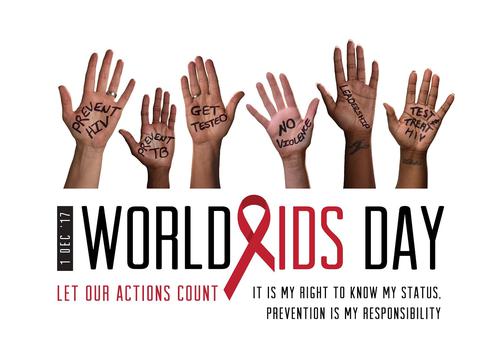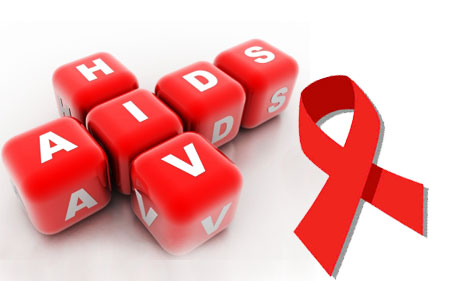How Long Will HIV Symptoms Show Up After You Get It?
Millions of people have succumbed to HIV and related ailments every year, making it one of the well-known and feared pandemics in the history of man. HIV is an abbreviation for Human Immunodeficiency Virus which is a virus passed from an infected person to another through the exchange of body fluids such as blood and mucus. The fact is that HIV is a pandemic that has left countless children orphans and homes deserted. And people consider December 1st every year as the World AIDS day. During this day, people are given an opportunity to unite and fight against HIV in various ways.
Once the virus gets its way into your bloodstream, it takes some time before symptoms can show up. The time between infection and detection of the symptoms is referred to seroconversion, and it might take 1 - 3 months while in other people it might go for up to 6 months. It is essential to learn some of the common facts about HIV so that you can know how to live if infected or if you are living with people infected with the virus.

How Soon Do HIV Symptoms Appear?
One of the main reasons why HIV is quite a devastating condition is the fact that it lacks early signs and no one can tell how long does it take for HIV symptoms to show. Some people are infected with the disease but they are not aware, and they might pass viruses to other people unknowingly. According to the Centers for Disease Control and Prevention, one person in every 8 HIV positive people is unaware that they are positive.
Most people ask how long does it take for HIV symptoms to show after the initial infection. How long it takes for HIV symptoms to show up varies from one person to the other. In most people, it will take three to four weeks, but in some other people, it might go up to six months without any visible symptoms. The reason why it takes longer for the symptoms to show is that the virus takes time to infect the cells of the body before the infection can be spread throughout the body to affect a person's wellbeing.
Symptoms of HIV in the Early Stage
HIV is a progressive disease which means that in most cases, it deteriorates as time goes on from the first infection. Some of the symptoms that come up in the early stages are mild, and in most cases, they can be mistaken for common diseases. Once the HIV gets entry into the body, most people will suffer from the short flu which in some cases can turn severe. The flu is the body's natural way of responding to the intrusion of the virus, and it can be accompanied with other symptoms such as fever, fatigue, headache, skin rashes, sore throat and weight loss, which are discussed below.
1. Fever
Fever is among the first signs shown by the body, and it can be accompanied by some other mild symptoms such which may include fatigue, sore throat, swelling of the lymph glands among others. Fever is considered a result of the inflammatory reaction induced by the immune system after the virus moves to the bloodstream and replicates.
2. Weight loss
There is a possibility of losing weight as a result of severe diarrhea, vomiting, and loss of appetite. Once the immune system is weakened, there is the likelihood of losing weight by more than 10%.
3. Skin Rashes
Skin rashes can occur at any stage of the infection, but in most cases, they appear in the initial stages. The skin rashes might appear as boils or itchy areas on some parts of the body like arms, the chest, abdomen, and the back. If you have some unexplainable rashes on the stated parts of the body or you have engaged in high-risk behavior, like unprotected sex, you should consider taking an HIV test.
4. Fatigue and headache
Fatigue and tiredness can be considered as an early or a later stage symptom, and it might be a result of the inflammatory response to the immune system. The reaction by the attacked immune system can cause a headache, fatigue and lack of energy to handle daily activities.
5. Nausea, vomiting, and diarrhea
In the early stages of infection, most people suffer from vomiting, diarrhea, and nausea for some time. These symptoms can be a result of HIV medication or opportunistic bacterial and fungal infections which tend to overcome the already weak immune system. Diarrhea that goes for a long time without responding to routine treatment can be a manifestation of HIV.
Symptoms That Appear in the Later Stages
1. Clinical latency
The effects of HIV on the body continue to affect the immune system, weakening it progressively. The second stage in the progression is clinical latency where the HIV reproduces and remains active in the body but at low levels. At this stage, infected people may fail to show any symptoms related to HIV or some mild ones may appear. This stage has no specific signs, and they might be absent entirely but some people can suffer from continued swelling of the lymph nodes and episodes of fatigue, diarrhea, and coughing, winding, high fever, and weight loss. In some people, the clinical latency stage might last for ten years or more while in others it can go for more than ten years especially if they use medication appropriately.
2. The last stage, AIDS
Through the clinical latency stage, the HIV weakens the immune system continually, and eventually, the diseases progress to the third stage: AIDS. The clinical latency can take longer if you control HIV with appropriate medication because treatment keeps the HIV under control. In the last step, the immune system is destroyed entirely, and the body is vulnerable to many infections. Some of the symptoms at this stage are a rapid loss in body weight, memory loss, pneumonia, skin patches, extreme tiredness, recurring fever, profuse night sweats and unrelenting swelling of the lymph glands.
With advancements in the field of healthcare and medicine, you can live a healthy life provided you adhere to medication. The ARV's helps in ensuring that HIV viruses remain in check by lowering the rate at which they replicate. Once you are infected, there is hope of living a healthy life if you follow the medications correctly and seeing a doctor regularly for treatment.

Summary
HIV is one of the most feared diseases because it can be passed from one to the other. The severity of the disease has made it necessary to appoint the World AIDS day in which people are given a chance to come together to fight the disease. Some of the ways of fighting the disease include sensitization where you are advised to go for testing so that you can know your status. No one knows how long does it take for HIV symptoms to show which means that it is good to be tested and if you test positive, you start taking medication immediately to ensure the virus are under control.
YOU MAY LIKE
-
Myth or Fact: Does Being Cold Make You Sick?
-
Is Possible to Get Allergic to Marijuana?
-
8 Best Ways to Get Rid of Pinworms
-
What Happens to Your Body When You Have HIV
-
How Long Does a Cold Last? A Few Days, One Week or More?
-
How Long Is a Cold Contagious: Symptoms and Tips
-
How Long Does Shingles Last? Things You Must Know
-
HIV VS AIDS - A Comparative Study!
-
Hepatitis C: Transition and Treatment
-
Cure a Sore Throat and Earache: Causes and Home Remedies
